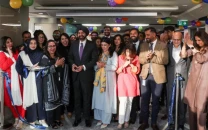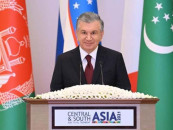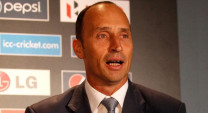Counter-narrative against terror – fighting extremists on the ideological front
Ideology which draws strength from religion can only be countered with narrative from the same source.

Ideology which draws strength from religion can only be countered with narrative from the same source. PHOTO: REUTERS
The collective conscience and will of the state was spurred into action only after 141 innocent children were murdered in December 2014 at the Army Public School; it took immense suffering at an individual and collective level to realise that to jaw-jaw is not always better than to war-war.
Prior to the harrowing incident, there was only dilly-dallying on how to tackle the menace of rabid militancy that has infected every part of the country. The canvas of our response to terrorist incidents ranged from rationalising the act of violence as an outcome of misguided but ‘good at heart’ individuals to disgruntled segments of society venting their frustration at the overwhelming influence of external factors on Pakistan’s foreign policy decisions. Indeed, some political parties emerged as public apologists for these acts of terror. The unrestricted and unadulterated airtime provided to spokespersons for terror outfits further exacerbated an already dicey situation by limiting the state’s capacity to mount a credible counter-narrative.
Understanding the psycho-social causes of extremism
Muslims make up the majority in Pakistan and Islam is the code of life they aspire to follow. Naturally, any narrative on religion - if formulated in the right way - will find traction with the local population. Over the years, terror outfits have recruited gullible individuals into their fold on the pretext of serving Islam, which in reality is only an indoctrination of distorted ideals to further their and their master’s geopolitical agendas. Traditionally, the rallying cry in Pakistan for waging war against the state has either been to enforce a specific brand of Shariah or that the state is in connivance with ‘infidel powers’ and so it is a legitimate target of violence as Westerners cannot be targeted directly for lack of capacity and resources. For terrorists, this is fair game.
Jesse Morton, a former terror recruiter, explained how he roped in potential recruits. His strategy was to convince the listeners that since Muslim rulers don’t implement Shariah law in its entirety, they are not true Muslims and by extension, it is acceptable to rebel against them.
Our state is also unable to sustain a credible counter-narrative because it has been starry-eyed in its relationship with Western powers. The term ‘Jihad’ was inappropriately confined to a ‘holy war against the infidels’ during the Soviet invasion of Afghanistan when Pakistan was in the western camp of the cold war. The Afghan ‘Mujahideen’ with US support and armaments defeated the Soviets but many generations were radicalised in both Afghanistan and Pakistan as a result, providing ample footholds for future terrorism.
Religious intolerance: ‘Similarities must be highlighted, not differences’
Coming back to the present, for an overtly religious society, Pakistanis don’t translate this zeal and enthusiasm into an in-depth study of sacred texts. All are then guilty of playing into the hands of a select but influential few who have studied religion but espouse only select portions which lead to a narrow interpretation amongst the masses. This not only restricts the capacity to broaden the scope of conventional wisdom with regards to religious texts but also leaves fault lines for exploitation on sectarian grounds. A narrative which draws its strength from religion can only be adequately countered with a counter-narrative based on facts drawn from the same source.
It is thus imperative that the brightest minds of the nation pursuing careers in science, technology, engineering and mathematics fields be impressed upon the importance of studying Islam and comparative religion. The demands of the modern world can only be met by such individuals, who can then help change the traditional discourse on religion.
Our counter-narrative should also be that we as a nation aim to be seen as a well-integrated entity in the world. We wish to be seen as a well-meaning and productive asset to the development and progress of the world and not as a divisive force out to upset the world order merely through the use of ultra-violence which terror networks aspire to do. In contrast, the rise should be tied to the ideals articulated by Allama Iqbal years ago:

“Read again the lessons of truth, of justice, of valour,
For you will be asked to take responsibility of leading the world.”
Now that much of the lost ground has been regained after Zarb-e-Azab and Radd-ul-Fasaad, the time is ripe for a successful battle on the ideological front. It would be naive to expect a miracle overnight because the effects of years of vitriol and extremist narrative will take time to do away with, but it must be done.
Raja Omer Shabbir is a columnist and professional services consultant based in Islamabad. He tweets @raj_omer



















COMMENTS
Comments are moderated and generally will be posted if they are on-topic and not abusive.
For more information, please see our Comments FAQ